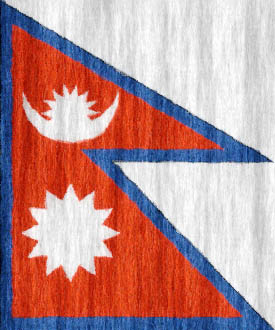IANS
Kathmandu
The Nepal government yesterday tabled a bill in parliament to create a “Nepal Reconstruction Authority” for rebuilding the nation eight months after the April earthquake, and another to address the demands of the agitating Madhesi political parties and ethnic groups of the Nepal Terai.
The process was delayed due to issues related to the plum post of chief executive officer (CEO) of the authority that will have sweeping powers to carry out major reconstruction work in the Himalayan nation which suffered extensive damage to infrastructure in the April 25 earthquake that claimed more than 9,000 lives.
The erstwhile Nepali Congress government had introduced an ordinance and appointed Govinda Pokhrel as CEO, but later the Communist Party of Nepal (Unified Marxists-Leninists), the second largest party in parliament, did not support the conversion of the ordinance into a bill.
Following criticism from national and international quarters over the sorry plight of thousands of quake victims living in squalid conditions during the harsh winter, the government was forced to negotiate with all the political parties before tabling the bill.
More than $4bn were committed by international donors to assist Nepal in the reconstruction task but the country has not been able to spend a single penny due to its failure to create the competent
authority.
Through another bill, the government sought to address the demands of the agitating Madhesi political parties and ethnic groups of the Nepal Terai who are demanding amendments in the country’s new constitution which they deem discriminatory and ignoring their rights.
However, the Madhesi parties opposed the move, saying they had not been consulted before tabling the bill.
The bill, which aims to amend the constitution, ensures constitutional guarantee of inclusive proportional representation of various ethnic minorities in various state entities apart from the Nepal Army and redrawing the electoral constituencies based on population.
The southern plains comprise of over 50% population of the country and if this bill is passed, the plains will have majority representation in parliament
after the next general elections.
Lawmakers from Madhesi parties protested, saying they had agreed to letting the tabling of only the reconstruction authority bill.
The agitating Madhesi parties have refused to accept the constitution amendment bill, claiming that it failed to address their concerns.
The government feels that the constitution amendment bill will address some grievances of the agitating Madhesis that will finally lead to an end to the ongoing demonstrations at Nepal-India border entry points.
Due to the ongoing agitation, thousands of Nepal-bound cargo vehicles have not been able to enter Nepal from India since the last four months. As a result, Nepal is facing serious shortage of essential supplies like food, medicines, fuel and other items.

